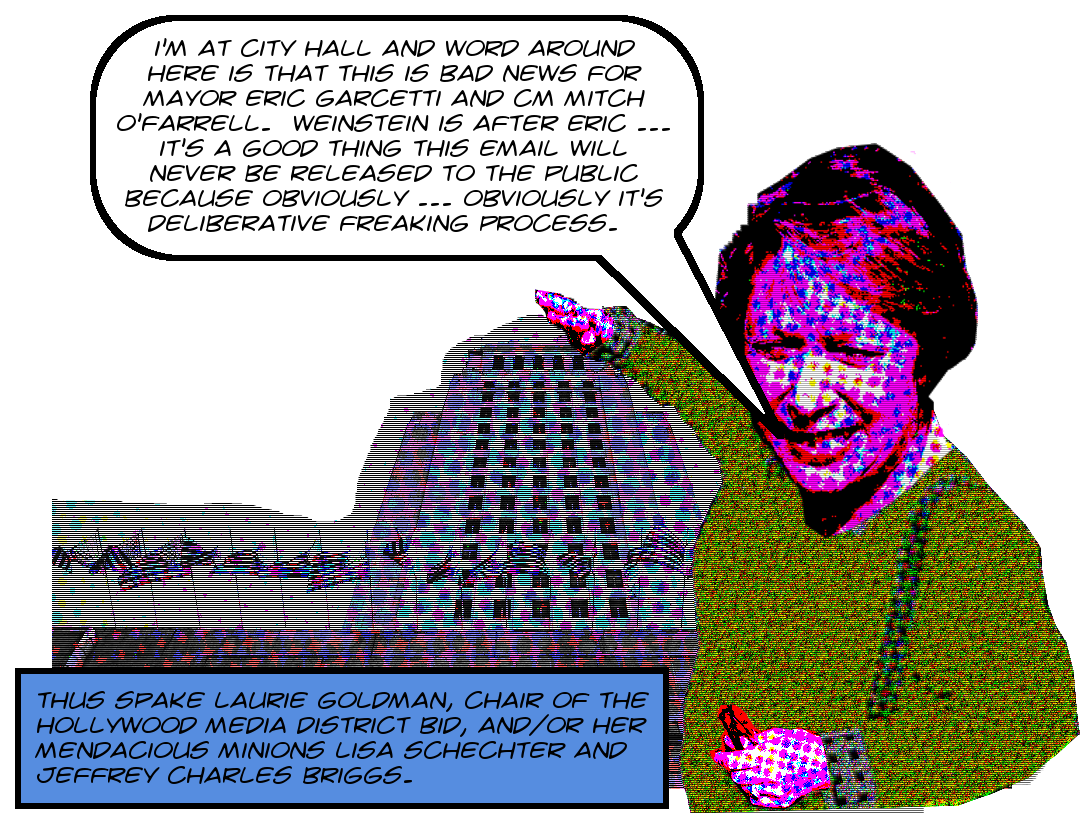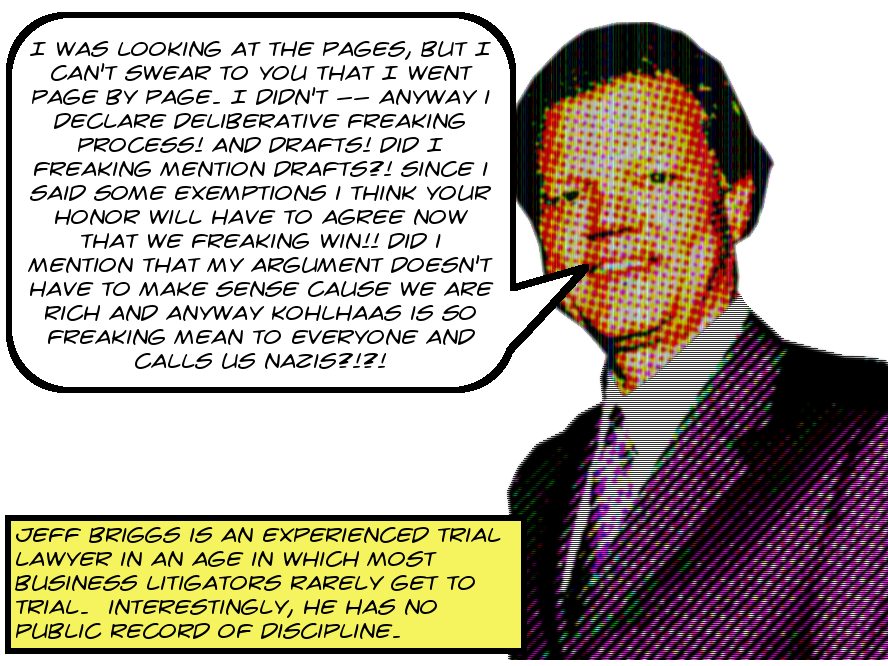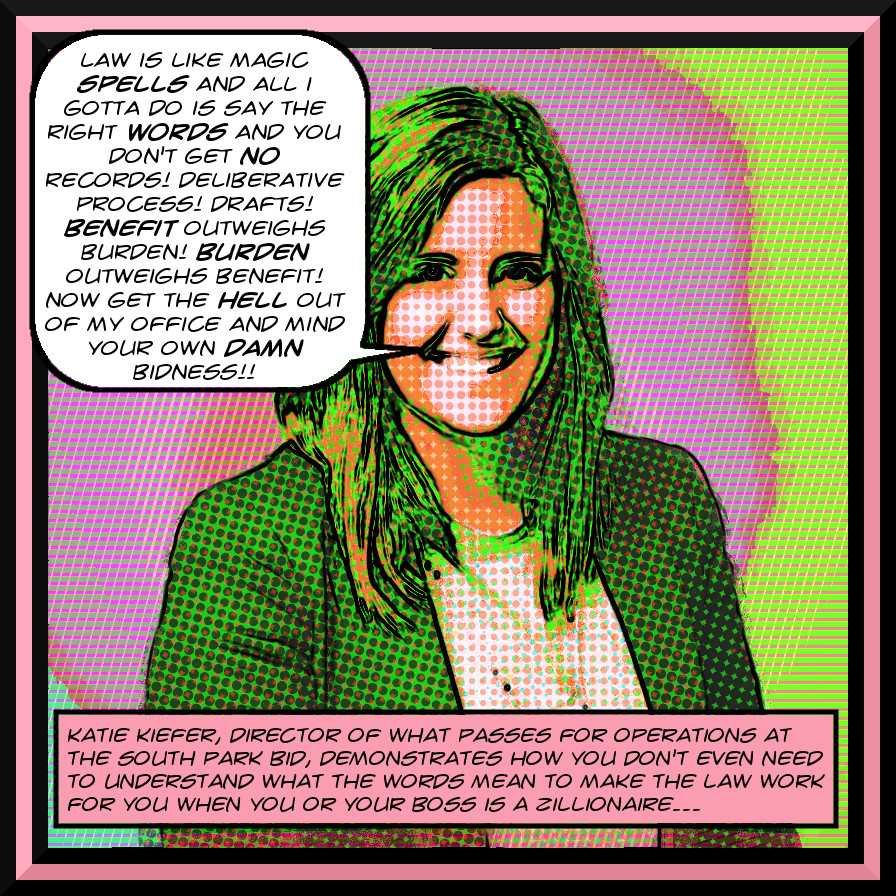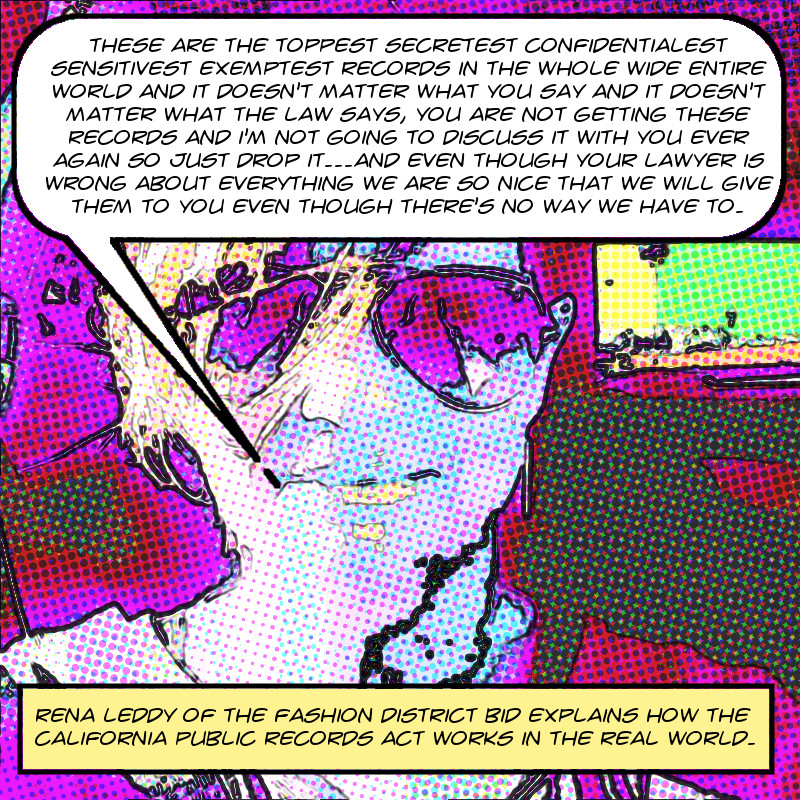 A couple weeks ago I wrote about an email that self-proclaimed Hollywood superlawyer Jeffrey Charles Briggs had released to me in response to a CPRA request but later claimed that it was exempt from release as a result of his having solemnly intoned the words “deliberative process” three times while standing on his hands naked at a crossroads at midnight on the Summer Solstice, which is about the level to which the CPRA has descended in this fair City in these latter days.
A couple weeks ago I wrote about an email that self-proclaimed Hollywood superlawyer Jeffrey Charles Briggs had released to me in response to a CPRA request but later claimed that it was exempt from release as a result of his having solemnly intoned the words “deliberative process” three times while standing on his hands naked at a crossroads at midnight on the Summer Solstice, which is about the level to which the CPRA has descended in this fair City in these latter days.
I mentioned at that point that he and his infernal client, the Hollywood Media District Property Owners Association, had been ordered by the Hon. Mary Strobel to hand over a whole passel of other emails which they’d claimed were exempt for various reasons.1 So finally I received these emails from le super-avocat de Hollywood lui-même, and now you can read them too!
For extra behind-the-scenes CPRA thrills, compare them to Jeffrey Charles Briggs’s summaries and aggressively hallucinated exemption claims in the declaration and log he filed with the court. And turn the page for a detailed analysis in a couple of cases of just how deeply, arrogantly nonsensical these exemption claims are revealed to be once we can compare them with the actual emails.
Continue reading More Hollywood Media District CPRA Exemption Claims Exposed By Court Order As Unmitigated Mendacity — E.G. Laurie Goldman’s City Hall Gossip-Mongering Chittery-Chat To Fellow Board Members Ferris Wehbe And David Freaking Bass About Michael Weinstein, Eric Garcetti, And Little Mitchie O’Farrell Could Not Be Considered Part Of A Deliberative Process Anywhere Outside Of The Feverishly Dizzying Intellect Of Self-Proclaimed Hollywood Superlawyer Jeffrey Charles Briggs



